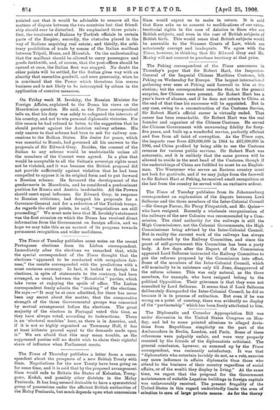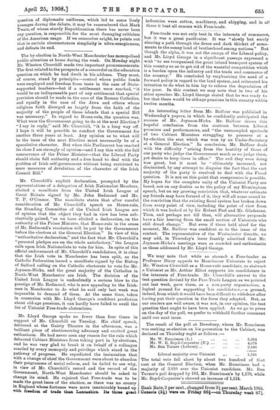The Diplomatic and Consular Appropriation Bill was under discussion in
the -United States Congress on Mon. clay, and led to some pointed allusions to alleged devia- tions from Republican simplicity on the part of the Ambassadors in Berlin, London, and Paris. Some of these references were palpably unfair, and were very properly resented by the friends of the diplomatists criticised. The general conelusion, however, as summed up by the Times correspondent, was eminently satisfactory. It was that "diplomatists who entertain lavishly do not, as a rule, exercise any more influence in affairs diplomatic than those who attend to the business of their country regardless of social affairs, or of the wealth they display in living." At the same time, we regret that the proposal for the Government maintenance of suitable Legation buildings in foreign capitals was unfavourably received. The present frugality of the 1;fnited States in this regard undoubtedly limits the area of sele4tiOn to raela of large private means. As for the thorny
question of diplomatic uniforms, which led to some lively passages during the debate, it may be remembered that Mark Twain, of whose sturdy Republicanism there has never been any question, is responsible for the most damaging criticism of the American usage. If we remember aright, he points out that in certain circumstances simplicity is ultra-conspicuous, and defeats its end.























































 Previous page
Previous page